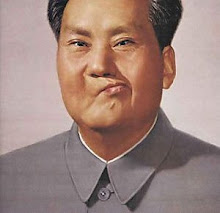
Ingrained into their minds at a very young age, Chinese children are programmed to respect their elders. They are constantly reminded of this in their academic and career-related endeavours. Lines such as "I hope you get a good job so you can support me when I'm old. It will be your turn then!" (and variations of) are commonplace in Chinese households. It should be noted that in an elder Chinese person's eyes, putting one's parents in a nursing home does not qualify as "supporting me when I'm old".
Born from this respect for their elders, Chinese children have always been taught to
refer to adults aged 30-65 as 'auntie' and 'uncle' even if there is no blood relation. As an example, for a man named Tony, he would be called 'uncle Tony' by his friend's children.
While this this is baffling to most Chinese children at first, they realize later in life that this naming convention can come in handy when:
-> the adult has no English name (i.e. Chinese name is difficult and/or weird)
-> they can't remember the adult's name
As many young Chinese people will tell you, greeting a Chinese adult for the first time or after a long hiatus with a simple, "Hi Uncle" or "Hi Auntie" will net huge brownie points.
For non-Chinese people meeting their friend's parents or boyfriend's/girlfriend's parents for the first time, it would be wise to avoid the Mr./Mrs. greeting and go straight for the Auntie/Uncle route. This demonstrates that you have a basic understanding of Chinese culture and that you just might be good enough to date their child. Maybe.




I think thats some good food for thought. I never thought of it from a safe point of view. But yes its an easy way out when you dont remember names. Its same as in the Indian culture. At times i wonder, how many relatives i had ?
ReplyDeleteFunny how the world's largest population share the same 'call'